Passport to Change is our flagship educational programme that inspires young people in our local areas to pursue careers in science, technology, engineering or maths (STEM). Laura Macshane, who manages the programme, explains why she’s so passionate about it.
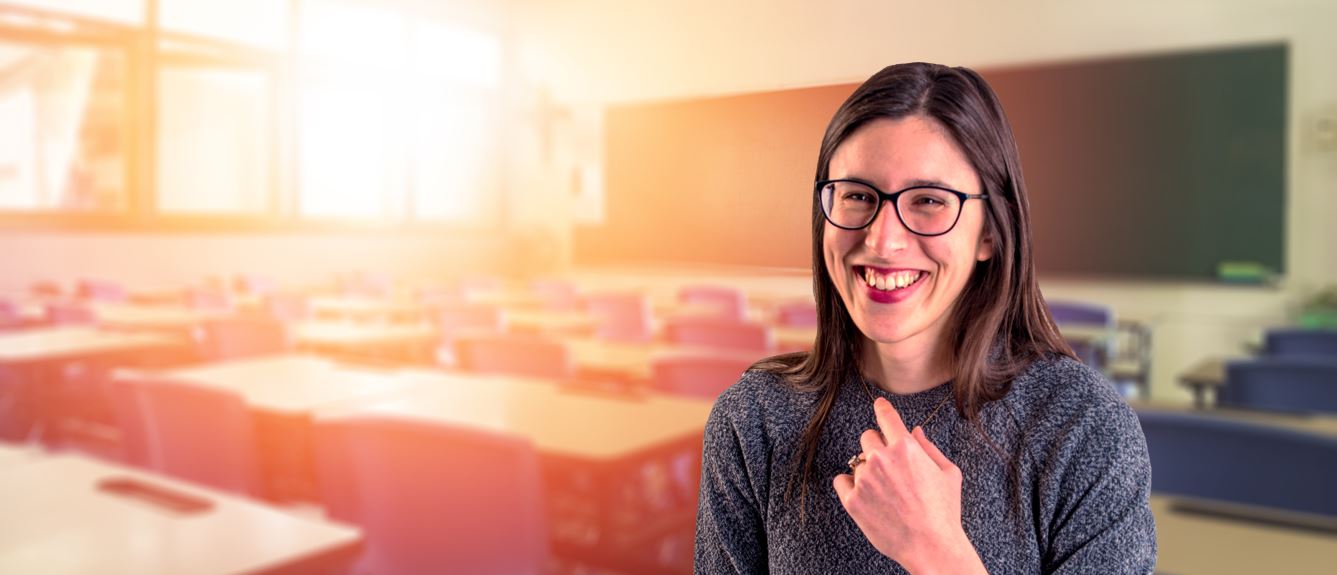
As the working world changes, science, technology, engineering and maths skills are becoming more important than ever. But there’s a shortage of young people studying subjects that will help develop them, especially in economically deprived areas. There’s also a gender imbalance, with far fewer girls choosing to study STEM subjects than boys. But we want the careers of the future to be open to all young people, regardless of their gender, race, or economic status.
Passport to Change is our flagship community initiative that sets out to address some of these issues. It’s a three-year educational programme which will prepare 11–14 year olds with the skills they need for the future. At Virgin Atlantic and Virgin Holidays our people use STEM skills every day. With Passport to Change, volunteers from our pilot, engineering, cabin crew, finance, IT, HR, cargo and airport teams go into schools and share their experiences, using educational resources created by our charity partner WE. This inspires and prepares participating students for any career path and empowers them to reach their full potential.
Laura Macshane is no stranger to Virgin Atlantic. She was based at our offices while working for our charity partner WE – an international development organisation and youth empowerment movement –and it’s thanks to her fantastic work that our relationship with WE has made such a difference to so many people around the world. Last year, Laura joined our team as a full time member and expanded her remit to cover our whole ‘Business as a Force for Good’ programme including Passport to Change. We caught up with her to find out more.
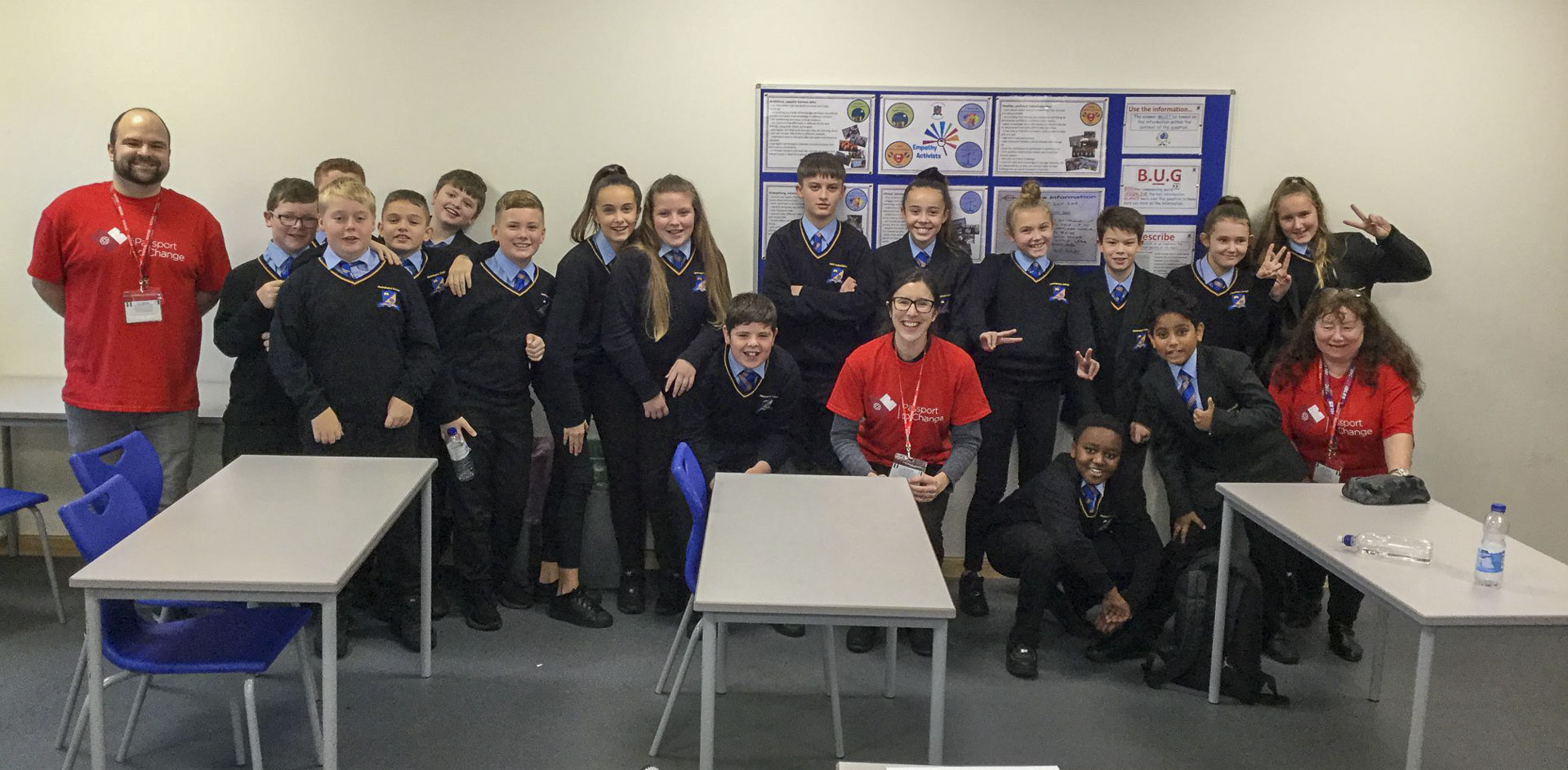
Laura joins our Swansea team to deliver a workshop on finance to Pentrehafod school.
Tell us a bit about your job?
My job title is Manager – Communications, Business for good. That means I bring together and communicate all the different things we’re doing to be a responsible airline, one that believes in using business as a force for good. That includes how we treat our people, our customers, our communities and our planet. A big part of that is our Passport to Change programme.
How did Passport to Change come about?
Passport to Change came about through our partnership with WE, who work with young people across the UK, empowering them to become change makers in their local communities. WE’s people go into schools as far afield as the Hebrides, or Northern Ireland – all over the UK – and do an assembly or a workshop to help the kids figure out how they want to make a difference. The WE team then help the students throughout the academic year in making that change happen.
We wanted to work with WE a bit differently to get our people more directly involved, and focus on schools local to our office – so we started Passport to Change. Our people are much more hands on, going into schools themselves to deliver career talks, or workshops, or mentoring to 11 to 14-year-olds. We’re in three schools right now, but we’re excited to see it grow as more people become involved.
Another important aspect of Passport to Change is that it’s really angled around STEM. We know more boys study these subjects. We want to show students at this age – boys and girls – the wide variety of people we have working for us, so they know they can really do anything.
It’s also really important that we find the right schools to work with. I did loads of research in the areas we wanted to launch in, focusing on schools that maybe didn’t have great Ofsted results, with a high percentage of kids on free schools meals, which is an indicator of how disadvantaged the population is in that school. It’s important we only work with schools that will really benefit. We don’t want to work where there are already loads of opportunities, where the kids go on planes all the time, or they already have access to the things we’re introducing to these students.
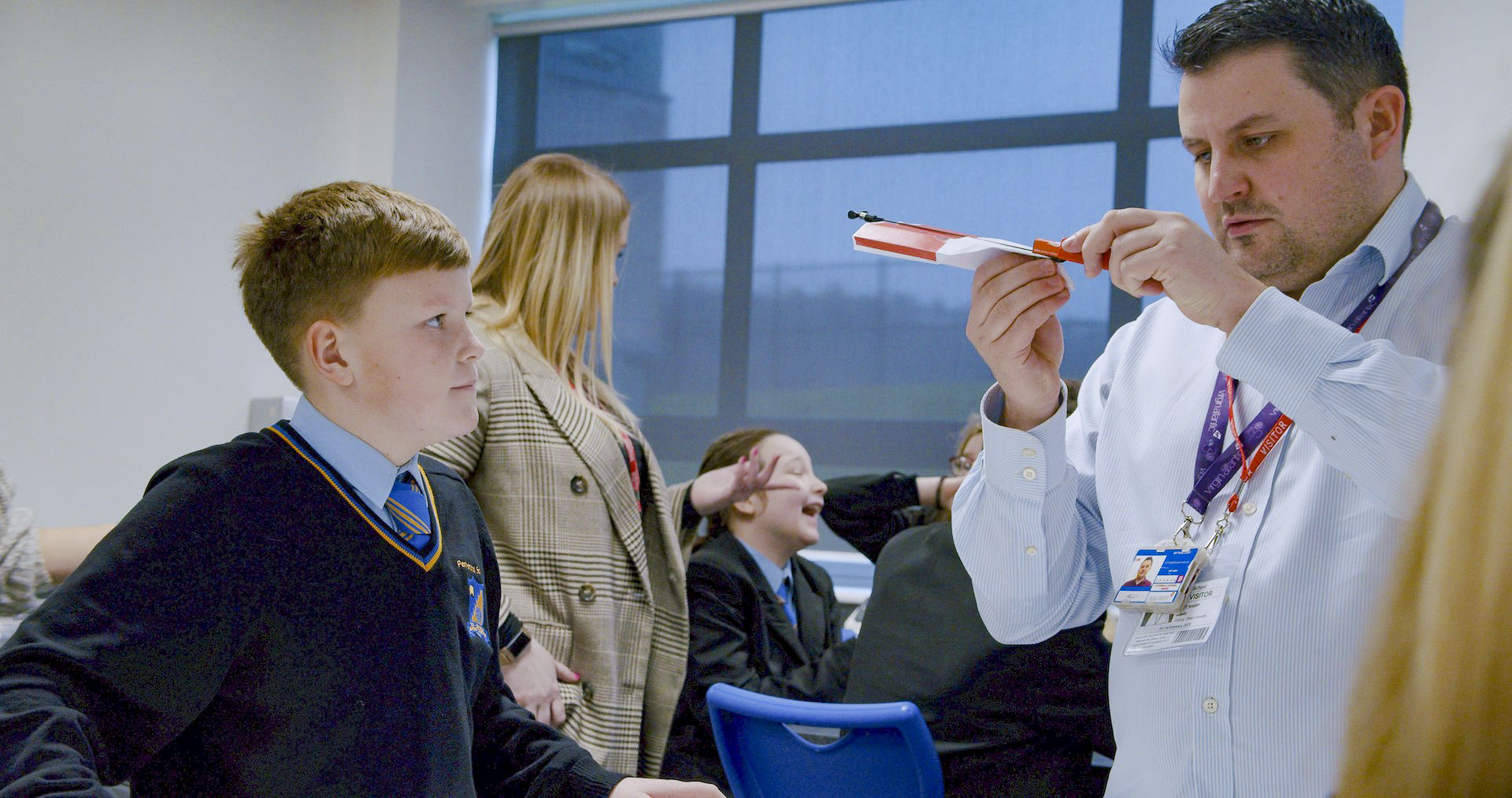
Matt Sharp and Lauren Emberson talk to the students in Swansea about what it means to work in engineering at Virgin Atlantic.
Why is STEM important?
STEM is really important, because the world depends on these skills to function. And I say this as someone who studied English Literature. The issue with STEM at the moment is that a wide variety of people are underrepresented in these areas. For example, at Virgin Atlantic, our pilots are mostly men. They’re mostly white. They’re mostly of a certain age. Engineers, same thing. This can lead to a certain way of solving problems, and it can also mean that broad sections of society lack a voice, or the power to impact future decisions that may directly affect them. So, we want to enable everyone to participate.
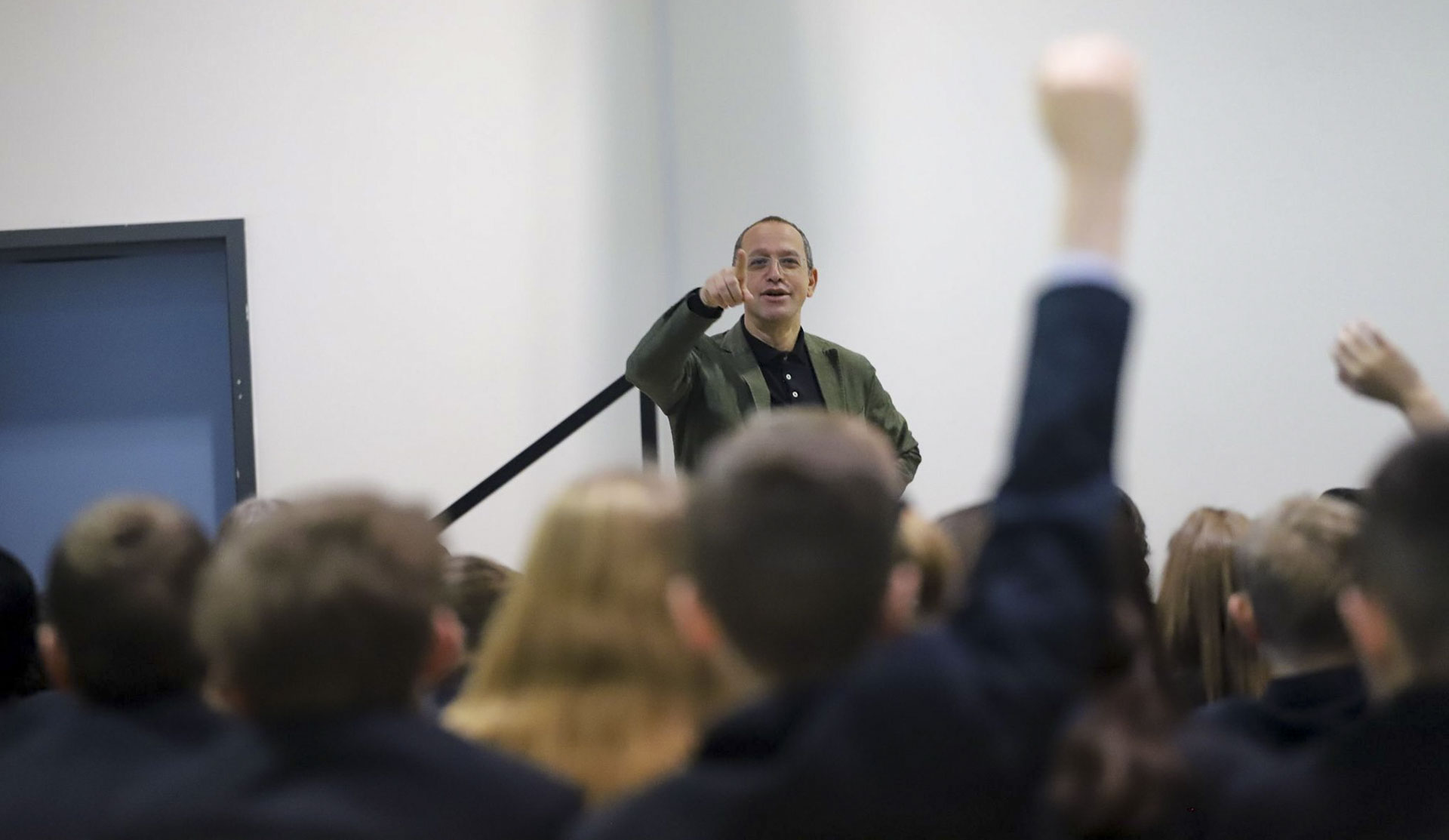
Shai Weiss, our CEO runs a Passport to Change session in Crawley, West Sussex.
What’s the relationship between Passport to Change and WE?
The WE schools model is all about empowering young people to know they can make a difference. The way we’re applying that through Passport to Change is by getting students to use STEM in their action plans. On top of that, we’re focusing on the soft skills around STEM subjects, so things like problem solving, critical thinking, creativity, communication, action-planning and so on. All the skills they’ll need to find solutions in their local community. For this year, the focus is on the environment, so the challenge might be: how could we engineer a clean water supply? They create a plan, and we go in regularly to help them see the real world application of those solutions and those careers.
Describe a Passport to Change session at a school
One example I love is when two engineers, Matt Sharp and Lauren Emberson, gave a workshop on the theory of flight. When they started I initially thought, ‘Oh, this might be a bit dry,’ but it was so fascinating. They talked about Leonardo da Vinci and his flying machines, right up to the present day and how we actually get our planes up in the air. Next was a paper plane-making competition with the kids in groups. Lauren and Matt had managed to get hold of some mini engines, which they attached to the planes, and then everyone just had fun seeing who could throw their plane the furthest. It really made everything come to life.
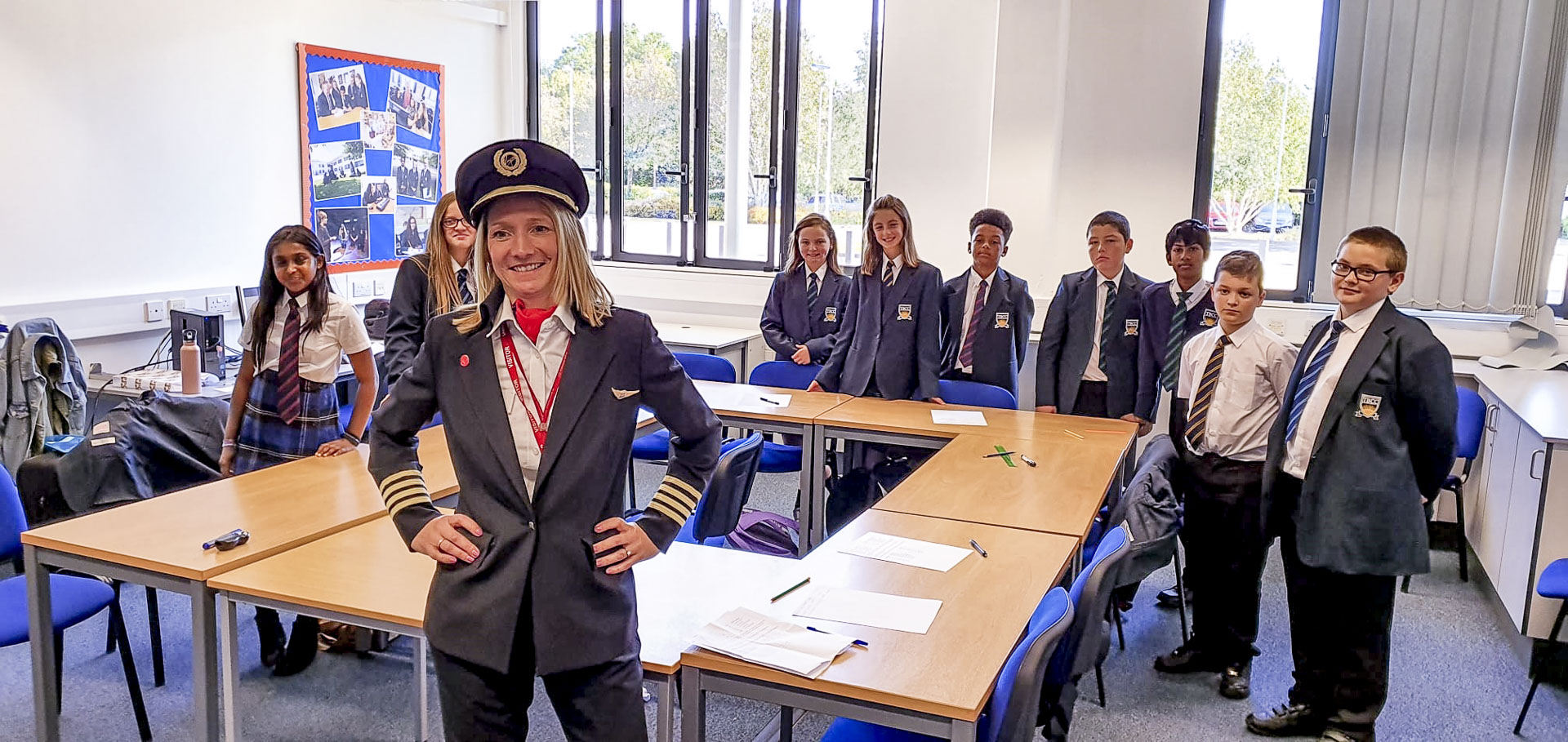
Captain Lorna Hutchings inspiring the students at Thomas Bennett school in Crawley
What’s the best thing you’ve learned?
How inquisitive the children are. They have so many questions and they’re so smart. I think in designing this programme, I underestimated how great young people are in the questions and the thinking they have.
What are your plans for the future?
This is our pilot year, but we want to expand to more places we fly to and from. Next year, we’ll be adding Manchester. I’ve learned so much over the four or five months we’ve been doing this, and we’re constantly trying to improve the programme. One thing I’d like to see is more people getting involved and going into the schools, though obviously we can’t flood the schools with volunteers. But we’re always thinking about how our people and their teams can get involved, and the lessons they might deliver, even if it doesn’t happen this academic year.
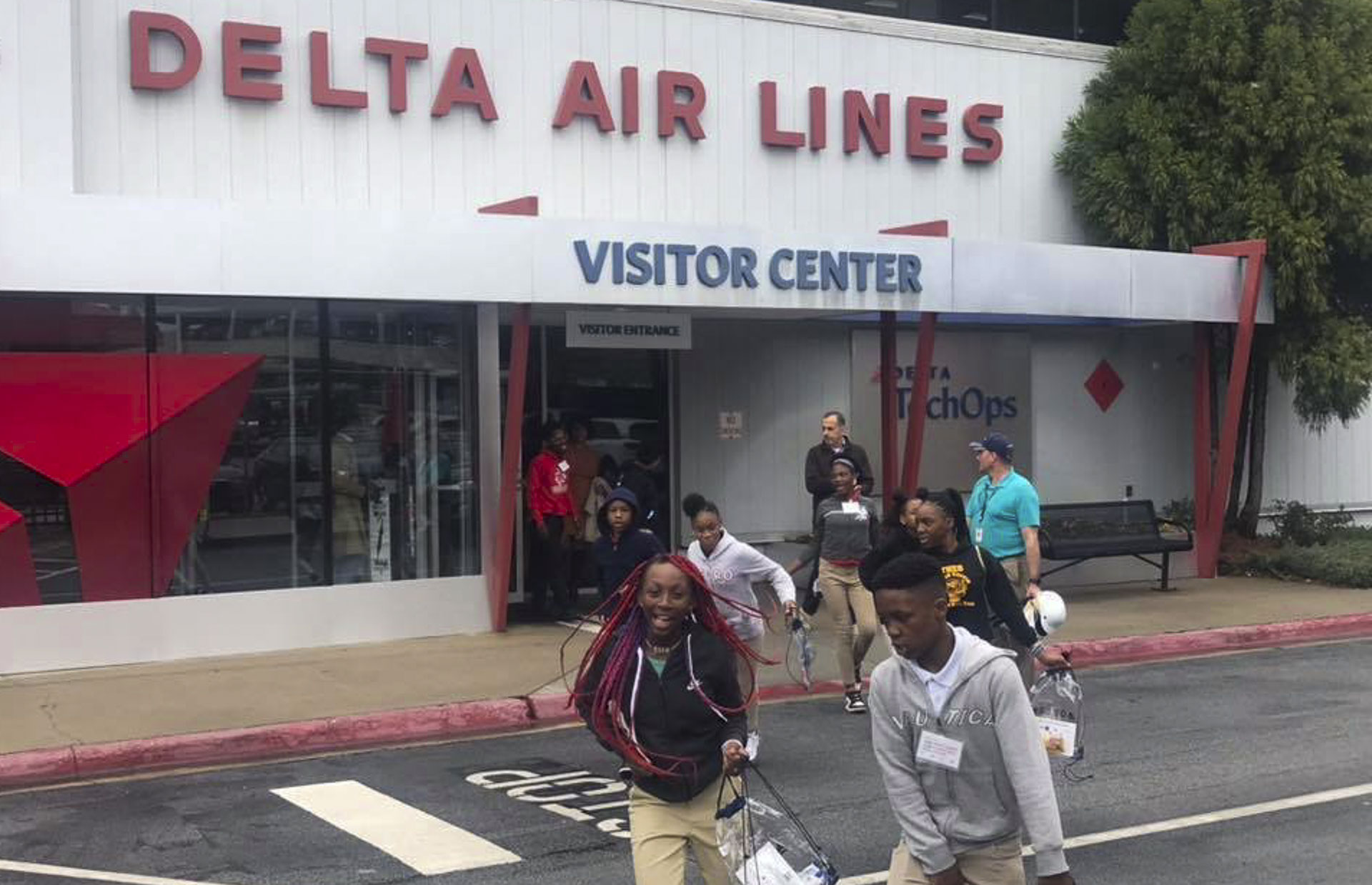
Students from our school in Atlanta visit Delta’s headquarters.
